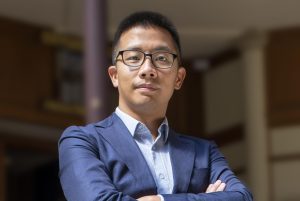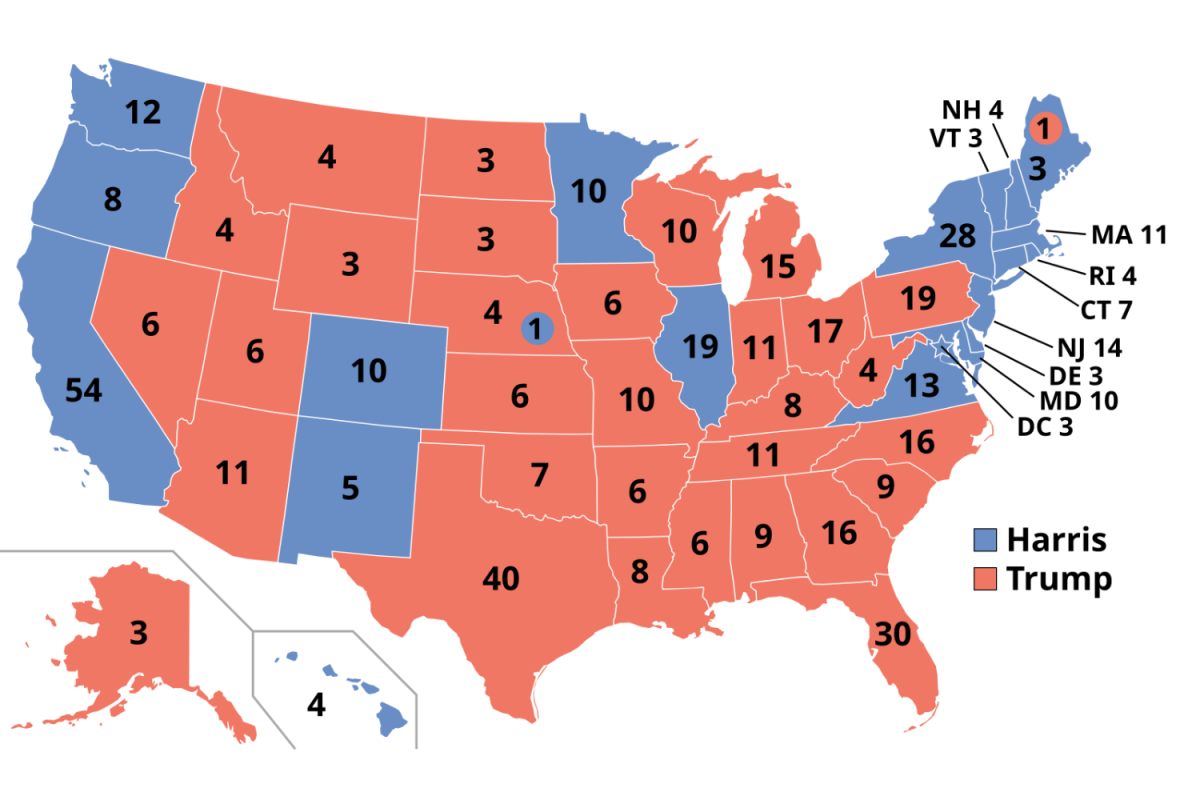After a contentious Democratic endorsement bid for Cuyahoga County Prosecutor that resurfaced questions over the criminal investigation of the fatal police shooting of then 12-year-old Black child Tamir Rice, his mother, Samaria Rice, said she will continue to advocate against incumbent Cuyahoga County Prosecutor Michael O’Malley regardless of any promises to re-open her son’s case from opposing candidate Matthew Ahn.
“If I have to go knock on every door in Cleveland, which I have already started, just for [O’Malley] not to be prosecutor, that’s what will happen,” Rice told The Exponent. “Believe me, I’m not worried about my family. He should be worried about me. And if he don’t want to be embarrassed, he needs to drop out of the prosecutor’s race.”
While early voting for the March 19 primary begins Wednesday, there will still be four weeks until the voters know which candidate will likely hold the seat.
Near the end of President Donald Trump’s administration in 2020, a civil rights investigation into the shooting of Tamir Rice stalled, and in a lawsuit filed against the City of Cleveland on behalf of Tamir Rice’s estate, Cleveland paid out $6 million to settle the wrongful death case.
Samaria Rice said that in 2017, O’Malley agreed to look back into the case behind closed doors.
“They come in like they’re gonna do something and help the people and they never do nothing,” Rice said. “They actually forget who helped them get in.”
However, O’Malley said, “Her memory is inaccurate” and that his message has always been consistent.
In a Cleveland.com article from 2017, O’Malley said that he did not plan to revisit the case without new evidence arising. He also said that he was working on an agreement with the Ohio Attorney General’s Office to ask for a special prosecutor to take control over the case if evidence did come to light.
O’Malley told The Exponent that he had not reopened the case because new evidence had not arisen.
At the Cuyahoga County Democratic Executive Committee meeting held on Jan. 6, where the members voted on the Democratic endorsement for county prosecutor, neither candidate received the 60% vote required for a Democratic endorsement. O’Malley received 58.5% of the votes, and Ahn received 38%
O’Malley said that during the meeting, Rice was screaming at his supporters.
“She was yelling racially derogatory comments at my African American supporters, and it was very disheartening to see,” O’Malley said.
One of O’Malley’s supporters backed this up in an interview with IdeaStream Public Media, who said that Samaria Rice shouted statements such as “slave master” during the meeting. Rice also agreed to making these statements.
“I’m willing to work with the new prosecutor. I would never work with Mike O’Malley because he’s a ‘slave catcher,’” Rice told The Exponent.
Ellen Kubit, Ahn’s campaign manager, said that while she does not remember that incident occurring during the meeting, she said she does not understand O’Malley’s “obsession with Samaria.”
“It’s very confusing, especially the way he characterizes Black advocacy as somehow being intimidation,” Kubit said.
Kubit said her campaign team has also not made any promises to re-open Tamir Rice’s case.
“We don’t make promises, ethically speaking, and as a lawyer, it is not something Matthew should do,” Kubit said.
One of Ahn’s promises that has drawn support from Samaria Rice is his promise to halt discretionary juvenile bindovers, where children can be sent to the adult court system at the request of the prosecutor.
“Don’t keep incarcerating the children,” Rice said. “It’s the school-to-prison pipeline, and we’re trying to stop it.”
As Cuyahoga County sends most children to the adult court system out of Ohio’s 88 counties, the issue of discretionary bindovers draws a distinction between what Ahn said is his “research-based” approach and O’Malley’s time in office since 2017.
Nearly all bindovers in Ohio involve Black children, and according to research conducted by the United States Department of Justice, children tried as adults are 34% more likely to commit another crime than when they are tried in juvenile court.
“I’d like to put a pause on discretionary bindovers so that we can actually understand those disparities and come up with a system that is fairer, that is more data driven and that is more evidence-based so that we can actually best hold children accountable in a way that will make sure they are not going to come before the court again,” Ahn said in a forum Thursday hosted by the Cleveland Metropolitan Bar Association.
During the forum, O’Malley said halting discretionary bindovers will violate Marsy’s law, a component of the Ohio Constitution that gives rights for the victims of crime and requires the victims to meet with the prosecutor’s staff.
“It’s basically a mandate that he will ignore the will of the victims and it’s a violation of his oath,” O’Malley said. “It’s a violation of the Constitution of the state of Ohio to tell people on the front end, ‘I will not listen to what your views are. I have already made a decision, and I have predetermined the outcome of this case.”’
However, Ahn said he does not believe that halting discretionary bindovers is a violation of the Ohio Constitution.
As O’Malley is coming in after seven years as the Cuyahoga County prosecutor and has served as an assistant county prosecutor, assistant law director, court bailiff and Cleveland City Council member, he said his approach comes from experience.
“He’s [Ahn] never been involved in any of it, so it’s easy to sit on the outside of an issue and cast judgement, but until you actually talk to victims, until you work with police officers, until you try to solve crime, until you’re trying to do any of the duties that we have, I mean, he doesn’t have a clue because he’s just never done it,” O’Malley said.
After graduating from law school, Ahn was a federal public defender in the Northern District of Ohio before becoming a visiting assistant professor at Cleveland State University College of Law.
O’Malley said that through his experience as a prosecutor, he has helped juveniles by leading the charge to create the Intervention and Divergence Center along with the Cuyahoga County Diversion program for adults. He said the use of these programs grows every year.
“What we are doing is keeping those people out of the cycle that we have seen in the past. The constant and frequent interactions with the criminal justice system,” O’Malley said. “We have established programs to get people healthy, to keep people out of the criminal justice and to reduce recidivism.”
Even so, Ahn said the Diversion Center needs to be more utilized.
“There is still a lot do in terms of encouraging police departments to use the Diversion Center to its fullest extent, and that is something that I would make a priority both in terms of top-down conversations that I would have with police chiefs, as well as individual conversations that prosecutors would be able to have,” Ahn said.
While Ahn also said he will stop the use of the death penalty, O’Malley again appealed to the impact of Marsy’s law in his defense of capital punishment in an interview with The Exponent.
“When we have situations involving families of murder victims, more than not, it’s us pushing back and saying [the death penalty] is not appropriate,” O’Malley said.
O’Malley said he only sees the use of the death penalty when there are situations of mass murders.
“It [the death penalty] should be used in only the rare circumstances, and I think we’ve demonstrated that,” O’Malley said. “We’ve not had a death penalty case in four years.”
However, Ahn said the death penalty is a policy failure all around since jurisdictions that use it see higher murder rates, it’s more expensive and can be erroneous.
“The prosecutor’s office has very few checks and balances on it,” Ahn told the Exponent. “If a prosecutor says ‘Hey, we’re not going to seek the death penalty,’ you know who can tell the prosecutor’s office that you have to do it anyway? The answer is nobody.”
Samaria said that if Ahn wins the election and does not fulfill his promises to aid juveniles, she will advocate against his future re-election.
“If he gets in and doesn’t want to do what he says he’s going to do, and he wants to tell him that he’s really a politician, it will be the first and the last time he will be a prosecutor,” Samaria Rice said





































